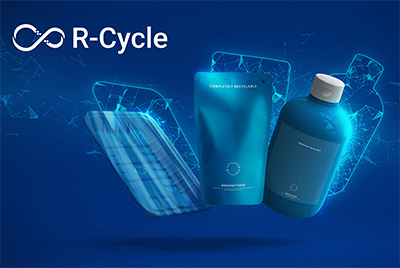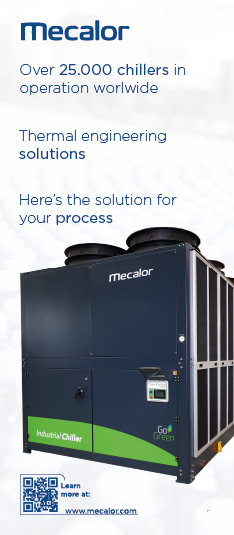| Plastics News |
26 companies present R-Cycle at K 2022
Digital product passport enables circular economy for plastic products November 17, 2022 - The R-Cycle platform – the digital product passport for plastic products – had a booth in the Circular Economy Forum at K 2022. The project leaders say the passport enables stakeholders in the value chain to exchange recycling-relevant information in an open standard format across company boundaries and make it accessible for various applications, such as improved waste sorting. A total of 26 leading companies and organizations presented R-Cycle at K 2022 as part of a joint booth in the Circular Economy Forum . Dr. Benedikt Brenken, Director R-Cycle, explains, “More and more leading companies along the entire value chain are relying on R-Cycle and benefiting from the added value of standardized data exchange along the life cycle of plastic products. At K 2022, we showed a wide variety of applications and product samples that have already been manufactured in high volumes and whose data can be accessed via automated digital product passports.” Looking at today’s waste streams, recyclable products – especially plastic packaging – sometimes cannot be sorted with sufficient accuracy for high-quality recycling. With R-Cycle, production machines read and record relevant data in a digital product passport, route it through the value chain, and make it retrievable via appropriate marking (e.g., QR codes or digital watermarks) on semi-finished and final products. In this way, waste sorting lines can identify recyclable packaging and form recycling-friendly and single-variety fractions. This is the basis for obtaining high-quality recyclates and building a functioning circular economy. In addition to improving product sustainability, manufacturers may also increase their process efficiency and product quality by using the digital product passport. Accurate information about source materials accelerates and optimizes production, while capturing proprietary product characteristics adds value for customers in the downstream value chain. “Data exchange is the key to an efficient circular economy,” Dr. Brenken adds. “The data is already available at the individual stations of the value chain. They just need to be transmitted, aggregated and made usable via an open standard. This is exactly what we offer with R-Cycle.” R-Cycle was developed to market maturity by various technology companies and organizations along the entire lifecycle of plastic products and can be networked with all systems (e.g., PPS, ERP) and production facilities: from film, blow molding or injection molding machines to processing, packaging and filling machines to waste sorting and recycling lines. The traceability technology behind R-Cycle is based on GS1 standards – the leading global network for cross-industry process development and a founding member of R-Cycle. R-Cycle is an interoperable infrastructure offered as software-as-a-service. In addition, an open community exists for interested companies, institutions or stakeholders who want to use, support or further develop R-Cycle. Members gain access to a broad network of application-experienced partners and know-how in digitalization and sustainability. The goal is to realize individual applications, generate benefits by networking the value chain and jointly establish R-Cycle worldwide. Source: R-Cycle
|


